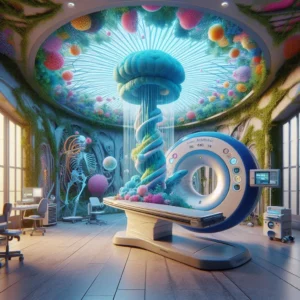Introduction
The world of healthcare runs on a complex system of communication, and at the heart of it lies medical coding. It’s the invisible translator, transforming medical encounters into a standardized language understood by insurance companies, government agencies, and other stakeholders. But for those new to the field, deciphering this code can seem like a daunting task. Fear not, future medical coding enthusiasts! This article serves as your friendly guide to understanding the basics of medical coding.
What is Medical Coding?
Imagine a doctor performs a routine checkup on a patient with a sore throat. The doctor examines the patient, prescribes medication, and documents everything in the medical record. Medical coding comes into play here. A medical coder, using specialized manuals and their knowledge of medical terminology, translates this encounter into a series of codes. These codes represent the diagnosis (sore throat) and the procedures performed (checkup, medication prescription). This coded information forms the basis for medical billing, where claims are submitted to insurance companies for reimbursement.
The Essential Codes: ICD-10 and CPT
There are two main coding systems used in the US healthcare system:
- ICD-10 (International Classification of Diseases, Tenth Revision): This system assigns alphanumeric codes to diagnoses, symptoms, and conditions. For example, the code for a sore throat (acute pharyngitis) is B90.0.
- CPT (Current Procedural Terminology): This system uses numeric codes to represent medical services and procedures performed by healthcare providers. For our example, a routine checkup might be coded as 99214, and prescribing medication could be 99213.
Beyond Diagnosis and Procedures: Additional Coding Systems
While ICD-10 and CPT are the cornerstones, medical coding encompasses other systems depending on the specific healthcare setting. Here are a few examples:
- HCPCS (Healthcare Common Procedure Coding System): This system assigns codes for certain medical services, equipment, and drugs not included in CPT.
- E/M Coding (Evaluation and Management): This system focuses on the complexity of outpatient visits, assigning codes based on factors like time spent and medical decision-making.
The Art of Choosing the Right Code
Medical coding isn’t as simple as matching symptoms to a code. Coders need to analyze the entire medical record, understand the nuances of different coding systems, and select the most specific and accurate code that reflects the service rendered. For instance, a simple sore throat might have a different code compared to a sore throat accompanied by a fever or strep throat. Selecting the right code ensures proper reimbursement and avoids claim denials by insurance companies.
The Importance of Medical Coding Accuracy
Accurate medical coding is crucial for the smooth functioning of the healthcare system. It ensures:
- Fair Reimbursement: Healthcare providers receive appropriate payment for services rendered.
- Accurate Healthcare Data: Coded data helps track disease trends, resource allocation, and healthcare quality.
- Efficient Claims Processing: Accurate codes minimize delays and denials in insurance claims processing.
The Path to Becoming a Medical Coder
A career in medical coding offers stability, good earning potential, and the satisfaction of contributing to the healthcare system. To become a certified medical coder, you can pursue various options:
- Associate’s Degree Programs: Several colleges offer associate’s degrees in medical coding or health information management (HIM).
- Coding Certification Programs: Independent organizations like the American Academy of Professional Coders (AAPC) and the American Health Information Management Association (AHIMA) offer certification programs.
- On-the-Job Training: Some healthcare facilities may provide on-the-job training for medical coding positions.
Essential Skills for Medical Coders
Beyond coding knowledge, medical coders need to possess a strong foundation in:
- Medical Terminology: Understanding the language of medicine is critical for interpreting medical records and selecting the correct codes.
- Anatomy and Physiology: A basic grasp of human body systems helps coders understand the context of diagnoses and procedures.
- Attention to Detail: Accuracy is paramount in medical coding, even a minor mistake can lead to claim denials.
- Staying Updated: Coding systems and regulations are constantly evolving, so continuous learning is essential.
The Future of Medical Coding
The world of medical coding is constantly evolving with advancements in technology and healthcare practices. Here are some trends to watch:
- Electronic Health Records (EHRs): The increasing use of EHRs is streamlining coding processes and improving accuracy.
- Automation: Coding automation tools are assisting coders with repetitive tasks, allowing them to focus on complex cases.
- Focus on Value-Based Coding: The healthcare system is shifting towards value-based care, and coding practices may adapt to reflect quality and outcomes
Beyond the Basics
Having explored the fundamentals of medical coding, let’s delve deeper into some practical aspects and resources to equip you for a successful career in this exciting field.
Coding Resources and Tools
Medical coders have an arsenal of resources at their disposal to ensure accuracy and efficiency. Here are some key tools:
- Coding Manuals: ICD-10 and CPT manuals are the official reference books for diagnosis and procedure codes, respectively. These manuals can be purchased in print or online versions.
- Coding Software: Many healthcare facilities utilize specialized software that assists with code selection, claim submission, and compliance checks.
- Online Resources: Several online resources offer coding assistance, including code lookup tools, educational materials, and online communities for coders.
- Coding Dictionaries: These resources provide definitions and clarifications for medical terminology, ensuring coders understand the nuances of various diagnoses and procedures.
Staying Compliant: Coding Ethics and Regulations
As a medical coder, adhering to ethical and legal regulations is paramount. Here are some key points to remember:
- HIPAA (Health Insurance Portability and Accountability Act): This law protects the privacy of patients’ medical information. Ensuring patient confidentiality is a crucial responsibility of medical coders.
- Coding Guidelines: Regulatory bodies like the Centers for Medicare & Medicaid Services (CMS) publish coding guidelines that define proper code usage and documentation requirements. Coders need to stay updated on these guidelines to avoid compliance issues.
- Coding Ethics: Maintaining honesty and integrity is vital. Coders should resist the temptation to upcode (selecting a higher-valued code than what’s justified) to maximize reimbursement, as this can lead to fraud investigations.
Beyond Coding: Exploring Career Options
While medical coding is a core skill, a career in this field offers diverse options to explore, depending on your interests and skills. Here are some possibilities:
- Medical Billing Specialist: This role involves working with insurance companies to ensure proper claim submission and reimbursement.
- Coding Compliance Auditor: This involves reviewing medical records for coding accuracy and adherence to regulations.
- Coding Trainer: Experienced coders can train new coders and help healthcare facilities maintain coding accuracy.
- Health Information Management (HIM) Professional: HIM professionals manage patient health information across various settings, with coding serving as a foundational skill.
The Importance of Soft Skills
Beyond technical knowledge, strong soft skills are essential for success in medical coding. These include:
- Communication: Effective communication with physicians, insurance companies, and patients is crucial for clarifying documentation and resolving coding issues.
- Critical Thinking: Medical coders need to analyze complex medical records and apply their knowledge to select the most appropriate codes.
- Problem-Solving: Dealing with claim denials or discrepancies requires a proactive approach to problem-solving and finding solutions.
- Interpersonal Skills: Collaboration with healthcare team members and insurance representatives is essential for smooth workflow.
Conclusion
The world of medical coding is a dynamic and ever-evolving field. With a solid foundation in coding principles, continuous learning, and a commitment to accuracy and ethical practices, you can build a rewarding career that contributes significantly to the healthcare system.
This introduction has hopefully provided a glimpse into the exciting world of medical coding. As you embark on your coding journey, remember, this is just the beginning. Embrace the journey of learning and explore the diverse opportunities this field offers.





